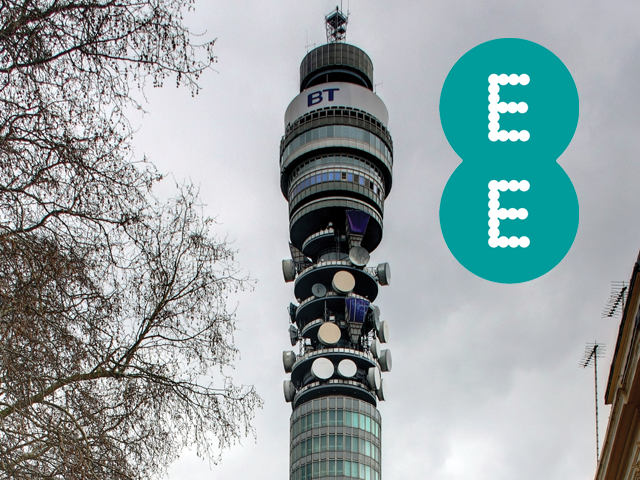Physical Address
304 North Cardinal St.
Dorchester Center, MA 02124
Physical Address
304 North Cardinal St.
Dorchester Center, MA 02124

Regulator gives provisional approval for merger and sets January deadline for final report
The Competition and Markets Authority has provisionally approved BT’s £12.5 billion takeover of EE, it announced today.
BT’s plans to buy EE, the UK’s largest mobile operator with 24.5 million direct mobile customers, was announced in February.
The CMA said after its phase one investigation into the merger had found the deal “the merger is not expected to result in a substantial lessening of competition (SLC) in any market in the UK.”
It said BT and EE operate primarily in different areas – broadband and fixed line for BT, and mobile for EE – with only limited overlap. BT launched a consumer MVNO that runs on EE’s network earlier this year, while EE offers broadband and fixed line services with just uner one million customers.
Inquiry chair John Wooton said: “We recognise that this is a merger which is important to many consumers and businesses. We have heard a number of concerns from competitors. After a detailed investigation, our provisional view is that these concerns will not translate into a competition problem in practice.
“We provisionally think that the retail mobile market in the UK, with 4 main mobile providers and a substantial number of smaller operators, is competitive. As BT is a smaller operator in mobile, it is unlikely that the merger will have a significant effect on competition. By the same token, it is unlikely that the merger will have a significant effect on competition in the retail broadband market, where EE is only a minor player.”
 EE CEO Olaf Swantee told Mobile News the operator had expected approval soon when discussing EE’s financial results last week.
EE CEO Olaf Swantee told Mobile News the operator had expected approval soon when discussing EE’s financial results last week.
Swantee said the UK was one of the last markets in Europe where the merger of a broadband and fixed line giant with a major mobile player was still possible.
Speaking on today’s CMA announcement, the EE CEO said: “EE welcomes the CMA’s provisional approval of our merger with BT. We now look forward to completing the deal quickly, and creating a new combined company designed to benefit both British consumers and businesses, while helping to propel the UK to the very front of global telecommunications.”
BT also welcomed the ruling, which will mark its re-entry into the mobile operator space following its decision to spinoff its BT Cellnet business, which subsequently became O2, in 2001.
BT Chief Executive Gavin Patterson said: “We’re pleased that the CMA has provisionally approved BT’s acquisition of EE. The combined BT and EE will be good for the UK, providing investment and ensuring consumers and businesses can benefit from further innovation in a highly competitive market”.
Openreach
However, BT could still face the proposition of being split from its infrastructure arm Openreach as part of a finalised agreement. In submissions to the CMA, rivals including TalkTalk, Virgin and Vodafone had all called for Openreach to be span off into a separate company.
A CMA statement added: “We have only considered Openreach to the extent it is relevant to issues arising from the merger. We are aware of concerns voiced recently about Openreach and wider concerns are currently being considered by Ofcom in their review of the whole telecommunications market.”
The inquiry will now consider responses to its initial findings, and has set a final deadline of January 18 to publish its report. Anyone wishing to respond must submit their comments to the CMA by emailing BT.EE@cma.gsi.gov.uk by November 19
Analysis
CCS Insight principal analyst (operators) Kester Mann said the decision to approve the deal with no major concessions being applied will be seen as a strong victory for BT, given the level of objection from rivals.
He added that the approval will have no bearing on Three-owner CK Hutchison’s proposed £10.25 billion buyout of O2, despite the CMA’s request to the European Commission to also oversee that deal.
“Provisional approval of the £12.5 billion deal is a great boost to BT’s multiplay ambitions in a market rapidly evolving towards bundled telecoms services.
“The announcement that no remedies will be applied represents a particular victory for the company. Rivals such as Sky, Vodafone and TalkTalk have repeatedly expressed concern over the dominant position of the proposed new entity, particularly around mobile spectrum and backhaul. It is sure to further fan the flames of their calls for structural separation of Openreach from BT, currently being considered as part of Ofcom’s digital review of the UK market.
“Despite today’s news, the proposed deal between 3 and O2 remains far from guaranteed. This is because unlike BT buying EE, it will reduce the number of mobile network operators from four to three. A similar move in Denmark recently collapsed over competition concerns, while recent sentiment from European regulators has moved against in-market consolidation.”